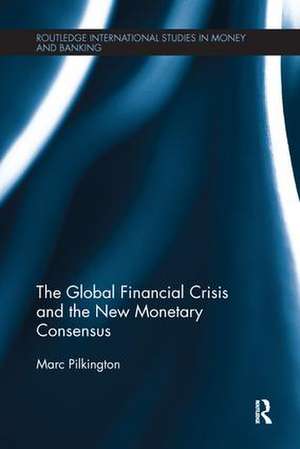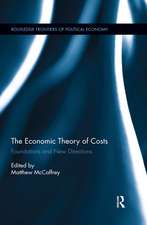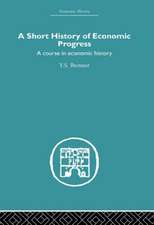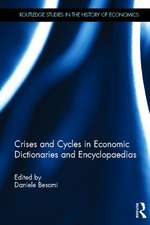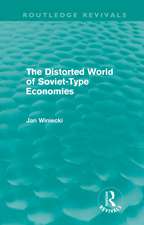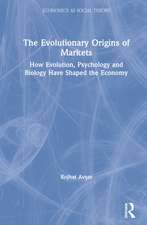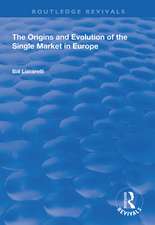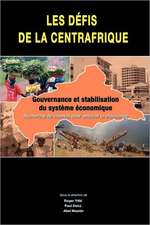The Global Financial Crisis and the New Monetary Consensus: Routledge International Studies in Money and Banking
Autor Marc Pilkingtonen Limba Engleză Paperback – 30 noi 2016
In the aftermath of the worst crisis since the Great Depression, the book investigates the nature of present and future monetary policy. Is the Taylor rule still a satisfactory monetary precept for central bankers? Has the New Monetary Consensus been shaken by the Global Financial Crisis? What are the fundamental issues raised by the latter cataclysmic chain of events? How should central banks conceptualize monetary policy anew in a post-crisis scenario?
Existing books have dwelt extensively on the characteristics of the New Monetary Consensus, but few have cast light on its relevance in a post-crisis scenario. This book seeks to fill this gap, drawing on the lessons from five decades of contrasted theoretical approaches ranging from Keynesianism, monetarism, new classical macroeconomics, inflation targeting and more recently, pragmatic global crisis management.
Din seria Routledge International Studies in Money and Banking
-
 Preț: 309.94 lei
Preț: 309.94 lei -
 Preț: 325.16 lei
Preț: 325.16 lei -
 Preț: 284.40 lei
Preț: 284.40 lei -
 Preț: 313.60 lei
Preț: 313.60 lei -
 Preț: 311.41 lei
Preț: 311.41 lei -
 Preț: 307.47 lei
Preț: 307.47 lei -
 Preț: 313.17 lei
Preț: 313.17 lei -
 Preț: 341.57 lei
Preț: 341.57 lei -
 Preț: 309.87 lei
Preț: 309.87 lei -
 Preț: 310.84 lei
Preț: 310.84 lei - 9%
 Preț: 864.85 lei
Preț: 864.85 lei -
 Preț: 664.77 lei
Preț: 664.77 lei - 18%
 Preț: 1175.01 lei
Preț: 1175.01 lei - 18%
 Preț: 1122.64 lei
Preț: 1122.64 lei - 18%
 Preț: 1056.00 lei
Preț: 1056.00 lei - 18%
 Preț: 1067.14 lei
Preț: 1067.14 lei - 27%
 Preț: 148.98 lei
Preț: 148.98 lei - 27%
 Preț: 503.80 lei
Preț: 503.80 lei - 18%
 Preț: 1058.79 lei
Preț: 1058.79 lei - 26%
 Preț: 820.40 lei
Preț: 820.40 lei - 18%
 Preț: 1058.79 lei
Preț: 1058.79 lei - 28%
 Preț: 821.46 lei
Preț: 821.46 lei - 18%
 Preț: 1057.40 lei
Preț: 1057.40 lei - 31%
 Preț: 765.01 lei
Preț: 765.01 lei - 18%
 Preț: 1056.28 lei
Preț: 1056.28 lei - 15%
 Preț: 254.03 lei
Preț: 254.03 lei - 18%
 Preț: 1064.70 lei
Preț: 1064.70 lei - 18%
 Preț: 1113.25 lei
Preț: 1113.25 lei - 18%
 Preț: 702.31 lei
Preț: 702.31 lei - 18%
 Preț: 1166.68 lei
Preț: 1166.68 lei - 30%
 Preț: 849.37 lei
Preț: 849.37 lei - 18%
 Preț: 1116.38 lei
Preț: 1116.38 lei - 30%
 Preț: 851.99 lei
Preț: 851.99 lei - 18%
 Preț: 1060.87 lei
Preț: 1060.87 lei - 28%
 Preț: 823.57 lei
Preț: 823.57 lei - 18%
 Preț: 1114.70 lei
Preț: 1114.70 lei - 25%
 Preț: 824.53 lei
Preț: 824.53 lei - 29%
 Preț: 1188.26 lei
Preț: 1188.26 lei - 28%
 Preț: 853.07 lei
Preț: 853.07 lei - 18%
 Preț: 1114.30 lei
Preț: 1114.30 lei -
 Preț: 418.22 lei
Preț: 418.22 lei - 30%
 Preț: 854.10 lei
Preț: 854.10 lei - 18%
 Preț: 1060.25 lei
Preț: 1060.25 lei - 18%
 Preț: 1165.73 lei
Preț: 1165.73 lei - 18%
 Preț: 1056.00 lei
Preț: 1056.00 lei - 30%
 Preț: 851.82 lei
Preț: 851.82 lei - 18%
 Preț: 1059.48 lei
Preț: 1059.48 lei - 18%
 Preț: 1240.95 lei
Preț: 1240.95 lei - 29%
 Preț: 1187.46 lei
Preț: 1187.46 lei
Preț: 192.39 lei
Preț vechi: 349.91 lei
-45% Nou
Puncte Express: 289
Preț estimativ în valută:
36.83€ • 40.01$ • 30.95£
36.83€ • 40.01$ • 30.95£
Carte tipărită la comandă
Livrare economică 21 aprilie-05 mai
Preluare comenzi: 021 569.72.76
Specificații
ISBN-13: 9781138231290
ISBN-10: 1138231290
Pagini: 288
Ilustrații: 108
Dimensiuni: 156 x 234 mm
Greutate: 0.53 kg
Ediția:1
Editura: Taylor & Francis
Colecția Routledge
Seria Routledge International Studies in Money and Banking
Locul publicării:Oxford, United Kingdom
ISBN-10: 1138231290
Pagini: 288
Ilustrații: 108
Dimensiuni: 156 x 234 mm
Greutate: 0.53 kg
Ediția:1
Editura: Taylor & Francis
Colecția Routledge
Seria Routledge International Studies in Money and Banking
Locul publicării:Oxford, United Kingdom
Public țintă
Postgraduate and UndergraduateCuprins
1. The Global Financial Crisis: an unprecedented configuration for monetary policy 2. Introduction: monetary policy prior to the NMC 3. A Simple Macroeconomic Model of the NMC 4. Transparency: an essential feature of the NMC 5. Credibility in the NMC 6. Price Stability and the Influence of Wicksell on the NMC 7. The interest-rate setting policy: the Taylor rule and beyond 8. Inflation targeting and the formation of a broad consensus 9. The statutory messions of the Fed and the ECB and the issue of the US Dollar 10. Exchange rate movements and global derivatives markets 11. The zero bound on nominal interest rates and deflationary fears 12. Austerity measurees versus growth: a post-crisis conundrum? 13. Quantitative easing: sound policy-making or an admission of defeat? 14. Revisiting the theory of optimum currency areas 15. Lessons from the Euro sovereign debt crisis 16. Post-crisis methodological considerations in central banking theory
Notă biografică
Marc Pilkington is Associate Professor of Economics at the University of Burgundy, France.
Descriere
In the wake of the global financial crisis, this volume traces the evolution of modern central banking over the last fifty years, and argues that the financial crisis has shaken the New Monetary Consensus.
